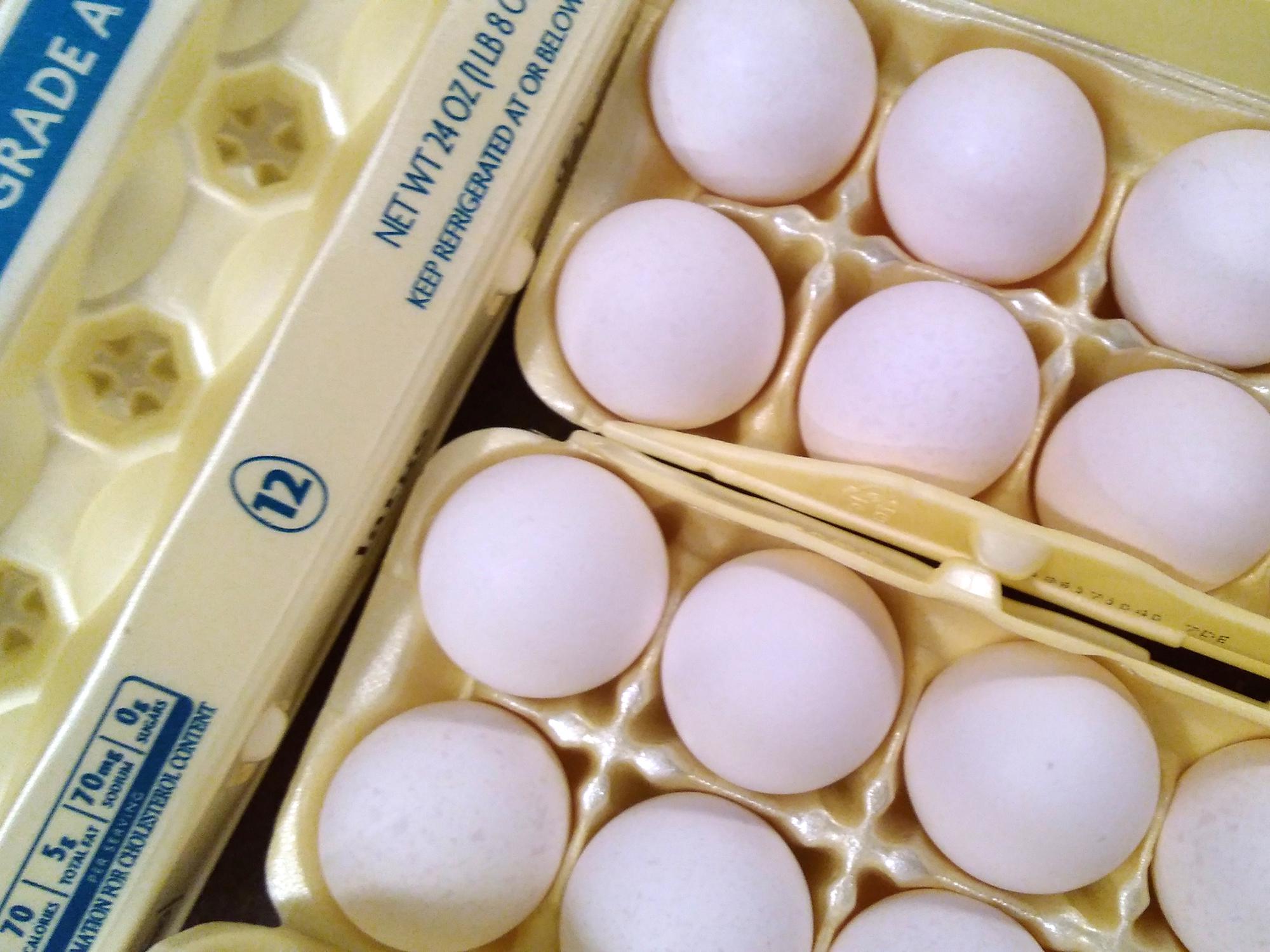Information Possibly Outdated
The information presented on this page was originally released on August 4, 2017. It may not be outdated, but please search our site for more current information. If you plan to quote or reference this information in a publication, please check with the Extension specialist or author before proceeding.
Eggs prices drop to lowest in decade, broiler prices up
RAYMOND, Miss. -- Mississippi's poultry industry remains healthy with a strong demand for broilers and a positive outlook for the remainder of 2017.
"Poultry companies are still looking for a few growers to build poultry houses, and contractors that build chicken houses and sell equipment, such as feeders, drinkers and fans, are staying busy," said Tom Tabler, poultry specialist with the Mississippi State University Extension Service. "They may not be as busy as they were two to three years ago when the current expansion was in full swing, but things are still good. Chicken is competing well against other proteins."
As the table egg industry nationwide recovered from the avian influenza outbreak of 2015, producers increased their hen flock inventories, creating an abundance of eggs on grocery shelves. This surplus has driven egg prices for this time of year to their lowest level in at least 10 years. That is good news for consumers but not so good for egg producers, such as Mississippi-based Cal-Maine Foods, the nation’s largest producer. But prices should recover later in the fall and winter when demand rises, Tabler said.
“The egg industry is a cyclical business, and it will work through this,” he said. “Folks eat more hot breakfasts, including eggs, once the weather cools down. Holiday cooking and baking always help boost egg consumption.”
Another factor impacting egg prices is the industrywide move to increase cage-free egg production, Tabler said.
“Usually, when prices are low, hen inventory is reduced to decrease egg numbers,” he said. “But most companies are now reluctant to decrease flock numbers because they need to move many of these hens into the cage-free flock status, but that is going to take time. So, there are just more eggs out there right now than folks can eat.”
Josh Maples, an Extension agricultural economist, said the average wholesale price for Grade A large table eggs was 77.61 cents per dozen for July.
“This is about the same as the average price in July 2016,” Maples said. “However, the January through July average price for 2017 is the lowest since the same period of 2006, and the average price for the first seven months of 2017 is less than half of the historically high prices of 2015.”
Prices for broilers during July averaged $1.04 per pound nationally, which is about 17 percent higher than the same month in 2016. For most of 2017, broiler prices have been higher than in 2016, Maples said.
Mississippi poultry integrators and farmers, who produce mostly broilers, face challenges yearround, including feed prices, summer heat and disease management. Feed costs make up almost 70 percent of integrators’ input expenses. Inclement weather that affects corn and soybean yields can drive those costs higher. Throughout the summer, producers must monitor their flocks for signs of heat stress. Although Mississippi has had no cases of avian influenza, growers must be on the lookout for symptoms of the disease transmitted primarily by wild birds.
“Fall and spring will be the most critical times because that’s when the wild flocks are moving,” Tabler said. “We cannot control where these ducks and geese will fly. We can’t predict which ducks and geese are going to comingle and which, if any, strain of the virus they may be carrying. Biosecurity is our best defense.”
In 2015, as the avian influenza virus spread rapidly in the Midwest, growers and integrators all over the country intensified their biosecurity measures, including limiting traffic to farms and company facilities. Tabler encouraged both commercial producers and people with home flocks to take the necessary biosecurity precautions and remain aware.
“If you suspect something is wrong and you are a commercial grower, contact your service technician immediately. Don’t wait,” he said. “If you have backyard chickens, contact your Extension county agent, the MSU Poultry Science Department, the Mississippi Board of Animal Health or the Mississippi Veterinary Research and Diagnostic Lab in Pearl.”







